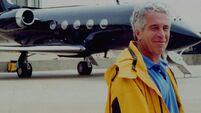Rice brokers Gaza Strip border deal
It is regarded as a significant step toward an eventual peace deal between historic enemies.
The agreement, which gives the Palestinians control over a border for the first time, took all-night negotiations and a strong diplomatic shove from Ms Rice. The basic elements of the deal had been in the works for weeks.














